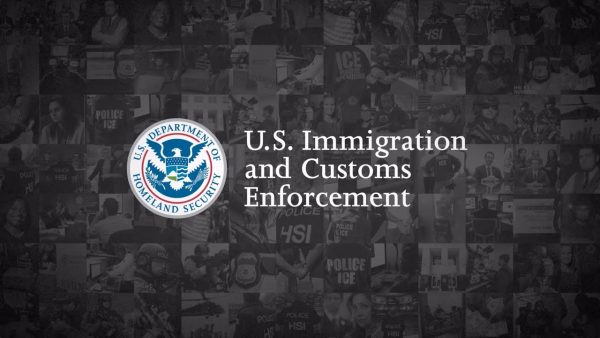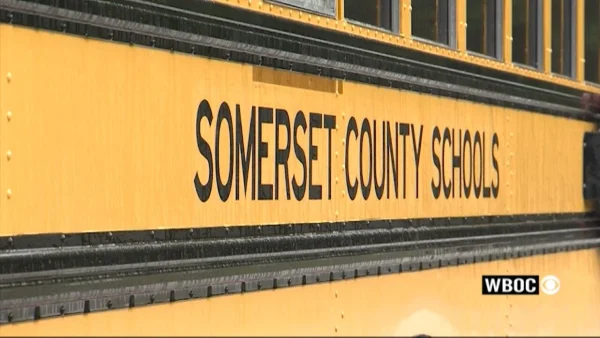
Photo Credits: CNN
Overview
Are schools still sanctuaries? Will they take me and my family? Am I safe? These are the questions that have been circulating around SHS recently. There is a lot of confusion about what the priorities of ICE are and if the safety of students are being put first. It is my hope to clear up this confusion and provide hope.
The Breakdown
The U.S. Immigration and Customs Enforcement, better known as ICE, began in 2003 following the September 11, 2001 terrorist attacks. Its primary mission has been to deport criminals who are in the U.S. with illegal citizen status.

Past presidential administrations have deported those with illegal status but since President Trump took office on January 21, the deportations have been more in the public eye. He has made a significant effort to enforce deportations in the United States.
SHS’s Policy
Specifically regarding schools, New Jersey has created a policy for ICE deportations that aim to put the safety of students first. This policy has been followed closely by our own Somerville administration. On Friday, I had the opportunity to sit down with superintendent Mr. Lubisco and gain insight into this new policy.
FAQ’s with Mr. Lubisco
Q: According to the policy, how likely is the possibility a student would be taken out of a school in NJ by ICE immigration agents?
A: Very unlikely. There is only a certain type of warrant that requires us to do anything. That would have to be a signed, judicial valid order. It couldn’t be an administrative ICE warrant or something like that. We wouldn’t even have to respond to that.
Q: In your own words – can you clarify the policy for SHS students and teachers?
A: If [an ICE agent] showed up we would not let them in, following our normal visitor policy. Administration and myself would be contacted first if anyone comes to the door. No students or students’ information will be given out without the administration first clearing that it is a valid warrant and that there is some type of reason that we have to act upon it now. We would then contact our attorney to ensure our students are protected and safe.
Q: How did you plan for students to feel supported?
A: We used Dr. Tanya McDonald (Director of Special Services) and her expertise and her staffing to provide the mental health support we thought might be necessary because of people being worried about their standing. People being worried about their family members. That could impact what was going on in the classroom and we wanted people to feel comfortable. So, Dr. McDonald trained all the mental health people in the entire district who then set up office hours for teachers to come in and also get that same information so they can help the students. Then we talked to the teachers and trained them, the ones most likely to be in contact with ones who might be in that situation – particularly ESL and World Language teachers. We had those sets of teachers with a whole bunch of information they can provide families and students with.
Q: Is information provided to parents? Furthermore, is this information translated for Spanish-speaking parents so they have access to it?
A: The Department of Education has this great website that was provided to all [staff] to give to families whenever there were questions. And it gave all of the necessary information. This is the guidance in New Jersey we were given: https://nj.gov/education/security/studentrights/index.shtml
Q: Is the school’s policy subject to change?
A: Helping our families and our kids is our number one priority, we want people to feel safe, respected, and comfortable. A standing agenda item at all of our meetings was “what are you hearing?,” “what do people need?” and “how can we better support our families and our students?” And that is not going anywhere. We will continue to have those conversations at every meeting. I don’t see that changing. New Jersey really prioritizes helping and supporting all of its people. It’s a very diverse state and people are very supportive with that.
Q: What would you say about things changing in our government?
A: Things could change at the drop of a hat from the federal government and we would have to respond and be ready. But since we have all these different groups we talk to constantly, we try to stay on top of it and find best practices/ways that people are supporting their folks.
Q: What would you say to students who are nervous during this time?
A: One, that we care about you more than anything. That’s our number one priority: taking care of our students. Number two would be that we are constantly on the lookout for how we can better support not only you but your families. If there are any concerns, know that everybody has been trained to be able to provide that support for you. And if we don’t have it, we’ll search to find a way to help you. And we will continue to do so as it evolves, because it is ever changing.
Mr. Lubisco further informed me that he has been in constant contact

with other superintendents across Somerset County to communicate what was being heard, seen, and how it was being dealt with. With this communication amongst superintendents in other districts, Mr. Lubisco said that he felt we were “taking care of our people in a positive way.”
The primary goal is to keep the students of Somerville as safe as possible. During his first year as Somerville’s superintendent, Mr. Lubisco has dealt with an influx of information about ICE thrown at him and nevertheless kept the student’s safety as the priority.
What Now?
Stay informed! Avoid news from social media or word of mouth. Most of the time those resources do not provide the whole truth. Do your research to ensure the most accurate information.

Our administrators are out to protect students and no one should have to live in fear. It is important to filter your news to avoid rumors and unreliable sources. If you have any questions feel free to review student rights here.
More Information:
https://www.cnn.com/2025/01/30/us/ice-immigration-customs-enforcement-explained-cec/index.html
https://www.ice.gov/
https://www.bbc.com/news/articles/clyn2p8x2eyo
https://www.nj.gov/education/security/studentrights/
